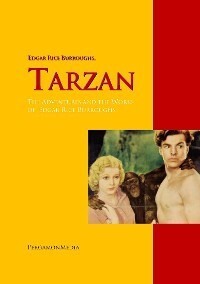
Полная версия
The Oakdale Affair

Titel: The Oakdale Affair
von Scott Hemphill, L. M. Montgomery, L. Frank Baum, John Milton, René Descartes, Baroness Emmuska Orczy Orczy, Karl Marx, Friedrich Engels, Edgar Rice Burroughs, Unknown, Norman F. Joly, Norman Coombs, David Slowinski, Mark Twain, Henry David Thoreau, Stephen Crane, John Goodwin, Nathaniel Hawthorne, Winn Schwartau, Odd De Presno, Sir Walter Scott, Jules Verne, Mary Wollstonecraft Shelley, United States. Central Intelligence Agency, United States, Canada, Willa Sibert Cather, Anthony Hope, Edwin Abbott Abbott, Charles Dickens, Frederick Douglass, William Shakespeare, Bruce Sterling, Franklin Delano Roosevelt, Jane Austen, Thomas Hardy, Sir Arthur Conan Doyle, Edna St. Vincent Millay, Gene Stratton-Porter, Richard McGowan, Frances Hodgson Burnett, United States. Bureau of the Census, Electronic Frontier Foundation, Robert Louis Stevenson, Anonymous, Jerry Bonnell, Robert Nemiroff, Andrew Lang, G. K. Chesterton, John Bunyan, Sunzi 6th cent. B.C., Harold Frederic, Mary Wollstonecraft, Victor Hugo, René Doumic, Upton Sinclair, Virginia Woolf, George Eliot, Thomas Paine, Benjamin Franklin, Plato, Samuel Taylor Coleridge, Ruth M. Sprague, William Dean Howells, Wilkie Collins, Jean Webster, H. G. Wells, Kate Chopin, Mark Eliot Laxer, Louisa May Alcott, Frank Norris, Edith Wharton, S. D. Humphrey, Henry Hunt Snelling, William Morris, Mrs. Susanna Rowson, Christopher Morley, Sax Rohmer, Oscar Wilde, Gaston Leroux, Henry James, Project Gutenberg, Harriet Beecher Stowe, Various, Robert W. Service, A. B. Paterson, Henry Lawson, Jack London, Laozi, D. H. Lawrence, Julius Caesar, Joseph Conrad, W. Somerset Maugham, George MacDonald, Marcus Tullius Cicero, Virgil, Theodore Dreiser, Giuseppe Salza, Rudyard Kipling, ca. 50 BCE-16 BCE Sextus Propertius, Robert A. Harris, William Wells Brown, graf Leo Tolstoy, Omar Khayyám, Michael Hart, Library of Congress. Copyright Office, Coalition for Networked Information, Geoffrey Chaucer, Adam Lindsay Gordon, Hiram Corson, Robert Browning, Amy Lowell, Rupert Brooke, Joyce Kilmer, John Gower, Saki, Kenneth Grahame, Anna Sewell, Martin Luther, Philipp Melanchthon, National Atomic Museum, Alexander William Kinglake, Charles John Cutcliffe Wright Hyne, Amelia Edith Huddleston Barr, James Branch Cabell, Bayard Taylor, Horatio Alger, Booth Tarkington, Hjalmar Hjorth Boyesen, Michael Husted, Émile Gaboriau, Jerome K. Jerome, Stephen Vincent Benét, Edwin Arlington Robinson, J. Frank Dobie, Joseph Rodman Drake, Eliot Gregory, John Fox, John Muir, Richard Harding Davis, Edgar A. Guest, Mary Roberts Rinehart, Thomas Nelson Page, Sir Walter Alexander Raleigh, Rebecca Harding Davis, Charles Alexander Eastman, Zitkala-Sa, Marie L. McLaughlin, J. M. Barrie, Bram Stoker, Hesiod, Edna Ferber, John McCrae, Anna Howard Shaw, Elizabeth Garver Jordan, Frances Jenkins Olcott, P.-J. Proudhon, Eleanor H. Porter
ISBN 978-3-7429-0324-2
Alle Rechte vorbehalten.
Es ist ohne vorherige schriftliche Erlaubnis nicht gestattet, dieses Werk im Ganzen oder in Teilen zu vervielfältigen oder zu veröffentlichen.
THE OAKDALE AFFAIR
By Edgar Rice Burroughs
Chapter One
The house on the hill showed lights only upon the first floor—in the spacious reception hall, the dining room, and those more or less mysterious purlieus thereof from which emanate disagreeable odors and agreeable foods.
From behind a low bush across the wide lawn a pair of eyes transferred to an alert brain these simple perceptions from which the brain deduced with Sherlockian accuracy and Raffleian purpose that the family of the president of The First National Bank of—Oh, let's call it Oakdale—was at dinner, that the servants were below stairs and the second floor deserted.
The owner of the eyes had but recently descended from the quarters of the chauffeur above the garage which he had entered as a thief in the night and quitted apparelled in a perfectly good suit of clothes belonging to the gentlemanly chauffeur and a soft, checked cap which was now pulled well down over a pair of large brown eyes in which a rather strained expression might have suggested to an alienist a certain neophytism which even the stern set of well shaped lips could not effectually belie.
Apparently this was a youth steeling himself against a natural repugnance to the dangerous profession he had espoused; and when, a moment later, he stepped out into the moonlight and crossed the lawn toward the house, the slender, graceful lines which the ill-fitting clothes could not entirely conceal carried the conviction of youth if not of innocence.
The brazen assurance with which the lad crossed the lawn and mounted the steps to the verandah suggested a familiarity with the habits and customs of the inmates of the house upon the hill which bespoke long and careful study of the contemplated job. An old timer could not have moved with greater confidence. No detail seemed to have escaped his cunning calculation. Though the door leading from the verandah into the reception hall swung wide to the balmy airs of late Spring the prowler passed this blatant invitation to the hospitality of the House of Prim. It was as though he knew that from his place at the head of the table, with his back toward the great fire place which is the pride of the Prim dining hall, Jonas Prim commands a view of the major portion of the reception hall.
Stooping low the youth passed along the verandah to a window of the darkened library—a French window which swung open without noise to his light touch. Stepping within he crossed the room to a door which opened at the foot of a narrow stairway—a convenient little stairway which had often let the Hon. Jonas Prim to pass from his library to his second floor bed-room unnoticed when Mrs. Prim chanced to be entertaining the feminine elite of Oakdale across the hall. A convenient little stairway for retiring husbands and diffident burglars—yes, indeed!
The darkness of the upper hallway offered no obstacle to this familiar housebreaker. He passed the tempting luxury of Mrs. Prim's boudoir, the chaste elegance of Jonas Prim's bed-room with all the possibilities of forgotten wallets and negotiable papers, setting his course straight for the apartments of Abigail Prim, the spinster daughter of the First National Bank of Oakdale. Or should we utilize a more charitable and at the same time more truthful word than spinster? I think we should, since Abigail was but nineteen and quite human, despite her name.
Upon the dressing table of Abigail reposed much silver and gold and ivory, wrought by clever artisans into articles of great beauty and some utility; but with scarce a glance the burglar passed them by, directing his course straight across the room to a small wall safe cleverly hidden by a bit of tapestry.
How, Oh how, this suggestive familiarity with the innermost secrets of a virgin's sacred apartments upon the part of one so obviously of the male persuasion and, by his all too apparent calling, a denizen of that underworld of which no Abigail should have intimate knowledge? Yet, truly and with scarce a faint indication of groping, though the room was dark, the marauder walked directly to the hidden safe, swung back the tapestry in its frame, turned the knob of the combination and in a moment opened the circular door of the strong box.
A fat roll of bills and a handful of jewelry he transferred to the pockets of his coat. Some papers which his hand brushed within the safe he pushed aside as though preadvised of their inutility to one of his calling. Then he closed the safe door, closed the tapestry upon it and turned toward a dainty dressing table. From a drawer in this exquisite bit of Sheraton the burglar took a small, nickel plated automatic, which he slipped into an inside breast pocket of his coat, nor did he touch another article therein or thereon, nor hesitate an instant in the selection of the drawer to be rifled. His knowledge of the apartment of the daughter of the house of Prim was little short of uncanny. Doubtless the fellow was some plumber's apprentice who had made good use of an opportunity to study the lay of the land against a contemplated invasion of these holy precincts.
But even the most expert of second story men nod and now that all seemed as though running on greased rails a careless elbow raked a silver candle-stick from the dressing table to the floor where it crashed with a resounding din that sent cold shivers up the youth's spine and conjured in his mind a sudden onslaught of investigators from the floor below.
The noise of the falling candlestick sounded to the taut nerved house-breaker as might the explosion of a stick of dynamite during prayer in a meeting house. That all Oakdale had heard it seemed quite possible, while that those below stairs were already turning questioning ears, and probably inquisitive footsteps, upward was almost a foregone conclusion.
Adjoining Miss Prim's boudoir was her bath and before the door leading from the one to the other was a cretonne covered screen behind which the burglar now concealed himself the while he listened in rigid apprehension for the approach of the enemy; but the only sound that came to him from the floor below was the deep laugh of Jonas Prim. A profound sigh of relief escaped the beardless lips; for that laugh assured the youth that, after all, the noise of the fallen candlestick had not alarmed the household.
With knees that still trembled a bit he crossed the room and passed out into the hallway, descended the stairs, and stood again in the library. Here he paused a moment listening to the voices which came from the dining room. Mrs. Prim was speaking. "I feel quite relieved about Abigail," she was saying. "I believe that at last she sees the wisdom and the advantages of an alliance with Mr. Benham, and it was almost with enthusiasm that she left this morning to visit his sister. I am positive that a week or two of companionship with him will impress upon her the fine qualities of his nature. We are to be congratulated, Jonas, upon settling our daughter so advantageously both in the matter of family and wealth."
Jonas Prim grunted. "Sam Benham is old enough to be the girl's father," he growled. "If she wants him, all right; but I can't imagine Abbie wanting a bald-headed husband with rheumatism. I wish you'd let her alone, Pudgy, to find her own mate in her own way—someone nearer her own age."
"The child is not old enough to judge wisely for herself," replied Mrs. Prim. "It was my duty to arrange a proper alliance; and, Jonas, I will thank you not to call me Pudgy—it is perfectly ridiculous for a woman of my age—and position."
The burglar did not hear Mr. Prim's reply for he had moved across the library and passed out onto the verandah. Once again he crossed the lawn, taking advantage of the several trees and shrubs which dotted it, scaled the low stone wall at the side and was in the concealing shadows of the unlighted side street which bounds the Prim estate upon the south. The streets of Oakdale are flanked by imposing battalions of elm and maple which over-arch and meet above the thoroughfares; and now, following an early Spring, their foliage eclipsed the infrequent arclights to the eminent satisfaction of those nocturnal wayfarers who prefer neither publicity nor the spot light. Of such there are few within the well ordered precincts of law abiding Oakdale; but to-night there was at least one and this one was deeply grateful for the gloomy walks along which he hurried toward the limits of the city.
At last he found himself upon a country road with the odors of Spring in his nostrils and the world before him. The night noises of the open country fell strangely upon his ears accentuating rather than relieving the myriad noted silence of Nature. Familiar sounds became unreal and weird, the deep bass of innumerable bull frogs took on an uncanny humanness which sent a half shudder through the slender frame. The burglar felt a sad loneliness creeping over him. He tried whistling in an effort to shake off the depressing effects of this seeming solitude through which he moved; but there remained with him still the hallucination that he moved alone through a strange, new world peopled by invisible and unfamiliar forms—menacing shapes which lurked in waiting behind each tree and shrub.
He ceased his whistling and went warily upon the balls of his feet, lest he unnecessarily call attention to his presence. If the truth were to be told it would chronicle the fact that a very nervous and frightened burglar sneaked along the quiet and peaceful country road outside of Oakdale. A lonesome burglar, this, who so craved the companionship of man that he would almost have welcomed joyously the detaining hand of the law had it fallen upon him in the guise of a flesh and blood police officer from Oakdale.
In leaving the city the youth had given little thought to the practicalities of the open road. He had thought, rather vaguely, of sleeping in a bed of new clover in some hospitable fence corner; but the fence corners looked very dark and the wide expanse of fields beyond suggested a mysterious country which might be peopled by almost anything but human beings.
At a farm house the youth hesitated and was almost upon the verge of entering and asking for a night's lodging when a savage voiced dog shattered the peace of the universe and sent the burglar along the road at a rapid run.
A half mile further on a straw stack loomed large within a fenced enclosure. The youth wormed his way between the barbed wires determined at last to let nothing prevent him from making a cozy bed in the deep straw beside the stack. With courage radiating from every pore he strode toward the stack. His walk was almost a swagger, for thus does youth dissemble the bravery it yearns for but does not possess. He almost whistled again; but not quite, since it seemed an unnecessary provocation to disaster to call particular attention to himself at this time. An instant later he was extremely glad that he had refrained, for as he approached the stack a huge bulk slowly loomed from behind it; and silhouetted against the moonlit sky he saw the vast proportions of a great, shaggy bull. The burglar tore the inside of one trousers' leg and the back of his coat in his haste to pass through the barbed wire fence onto the open road. There he paused to mop the perspiration from his forehead, though the night was now far from warm.
For another mile the now tired and discouraged house-breaker plodded, heavy footed, the unending road. Did vain compunction stir his youthful breast? Did he regret the safe respectability of the plumber's apprentice? Or, if he had not been a plumber's apprentice did he yearn to once again assume the unharried peace of whatever legitimate calling had been his before he bent his steps upon the broad boulevard of sin? We think he did.
And then he saw through the chinks and apertures in the half ruined wall of what had once been a hay barn the rosy flare of a genial light which appeared to announce in all but human terms that man, red blooded and hospitable, forgathered within. No growling dogs, no bulking bulls contested the short stretch of weed grown ground between the road and the disintegrating structure; and presently two wide, brown eyes were peering through a crack in the wall of the abandoned building. What they saw was a small fire built upon the earth floor in the center of the building and around the warming blaze the figures of six men. Some reclined at length upon old straw; others squatted, Turk fashion. All were smoking either disreputable pipes or rolled cigarets. Blear-eyed and foxy-eyed, bearded and stubbled cheeked, young and old, were the men the youth looked upon. All were more or less dishevelled and filthy; but they were human. They were not dogs, or bulls, or croaking frogs. The boy's heart went out to them. Something that was almost a sob rose in his throat, and then he turned the corner of the building and stood in the doorway, the light from the fire playing upon his lithe young figure clothed in its torn and ill fitting suit and upon his oval face and his laughing brown eyes. For several seconds he stood there looking at the men around the fire. None of them had noticed him.
"Tramps!" thought the youth. "Regular tramps." He wondered that they had not seen him, and then, clearing his throat, he said: "Hello, tramps!"
Six heads snapped up or around. Six pairs of eyes, blear or foxy, were riveted upon the boyish figure of the housebreaker. "Wotinel!" ejaculated a frowzy gentleman in a frock coat and golf cap. "Wheredju blow from?" inquired another. "'Hello, tramps'!" mimicked a third.
The youth came slowly toward the fire. "I saw your fire," he said, "and I thought I'd stop. I'm a tramp, too, you know."
"Oh," sighed the elderly person in the frock coat. "He's a tramp, he is. An' does he think gents like us has any time for tramps? An' where might he be trampin', sonny, without his maw?"
The youth flushed. "Oh say!" he cried; "you needn't kid me just because I'm new at it. You all had to start sometime. I've always longed for the free life of a tramp; and if you'll let me go along with you for a little while, and teach me, I'll not bother you; and I'll do whatever you say."
The elderly person frowned. "Beat it, kid!" he commanded. "We ain't runnin' no day nursery. These you see here is all the real thing. Maybe we asks fer a handout now and then; but that ain't our reg'lar lay. You ain't swift enough to travel with this bunch, kid, so you'd better duck. Why we gents, here, if we was added up is wanted in about twenty-seven cities fer about everything from rollin' a souse to crackin' a box and croakin' a bull. You gotta do something before you can train wid gents like us, see?" The speaker projected a stubbled jaw, scowled horridly and swept a flattened palm downward and backward at a right angle to a hairy arm in eloquent gesture of finality.
The boy had stood with his straight, black eyebrows puckered into a studious frown, drinking in every word. Now he straightened up. "I guess I made a mistake," he said, apologetically. "You ain't tramps at all. You're thieves and murderers and things like that." His eyes opened a bit wider and his voice sank to a whisper as the words passed his lips. "But you haven't so much on me, at that," he went on, "for I'm a regular burglar, too," and from the bulging pockets of his coat he drew two handfuls of greenbacks and jewelry. The eyes of the six registered astonishment, mixed with craft and greed. "I just robbed a house in Oakdale," explained the boy. "I usually rob one every night."
For a moment his auditors were too surprised to voice a single emotion; but presently one murmured, soulfully: "Pipe de swag!" He of the frock coat, golf cap, and years waved a conciliatory hand. He tried to look at the boy's face; but for the life of him he couldn't raise his eyes above the dazzling wealth clutched in the fingers of those two small, slim hands. From one dangled a pearl necklace which alone might have ransomed, if not a king, at least a lesser member of a royal family, while diamonds, rubies, sapphires, and emeralds scintillated in the flaring light of the fire. Nor was the fistful of currency in the other hand to be sneezed at. There were greenbacks, it is true; but there were also yellowbacks with the reddish gold of large denominations. The Sky Pilot sighed a sigh that was more than half gasp.
"Can't yuh take a kid?" he inquired. "I knew youse all along. Yuh can't fool an old bird like The Sky Pilot—eh, boys?" and he turned to his comrades for confirmation.
"He's The Oskaloosa Kid," exclaimed one of the company. "I'd know 'im anywheres."
"Pull up and set down," invited another.
The boy stuffed his loot back into his pockets and came closer to the fire. Its warmth felt most comfortable, for the Spring night was growing chill. He looked about him at the motley company, some half-spruce in clothing that suggested a Kuppenmarx label and a not too far association with a tailor's goose, others in rags, all but one unshaven and all more or less dirty—for the open road is close to Nature, which is principally dirt.
"Shake hands with Dopey Charlie," said The Sky Pilot, whose age and corpulency appeared to stamp him with the hall mark of authority. The youth did as he was bid, smiling into the sullen, chalk-white face and taking the clammy hand extended toward him. Was it a shudder that passed through the lithe, young figure or was it merely a subconscious recognition of the final passing of the bodily cold before the glowing warmth of the blaze? "And Soup Face," continued The Sky Pilot. A battered wreck half rose and extended a pudgy hand. Red whiskers, matted in little tangled wisps which suggested the dried ingredients of an infinite procession of semi-liquid refreshments, rioted promiscuously over a scarlet countenance.
"Pleased to meetcha," sprayed Soup Face. It was a strained smile which twisted the rather too perfect mouth of The Oskaloosa Kid, an appellation which we must, perforce, accept since the youth did not deny it.
Columbus Blackie, The General, and Dirty Eddie were formally presented. As Dirty Eddie was, physically, the cleanest member of the band the youth wondered how he had come by his sobriquet—that is, he wondered until he heard Dirty Eddie speak, after which he was no longer in doubt. The Oskaloosa Kid, self-confessed 'tramp' and burglar, flushed at the lurid obscenity of Dirty Eddie's remarks.
"Sit down, bo," invited Soup Face. "I guess you're a regular all right. Here, have a snifter?" and he pulled a flask from his side pocket, holding it toward The Oskaloosa Kid.
"Thank you, but;—er—I'm on the wagon, you know," declined the youth.
"Have a smoke?" suggested Columbus Blackie. "Here's the makin's."
The change in the attitude of the men toward him pleased The Oskaloosa Kid immensely. They were treating him as one of them, and after the lonely walk through the dark and desolate farm lands human companionship of any kind was to him as the proverbial straw to the man who rocked the boat once too often.
Dopey Charlie and The General, alone of all the company, waxed not enthusiastic over the advent of The Oskaloosa Kid and his priceless loot. These two sat scowling and whispering in the back-ground. "Dat's a wrong guy," muttered the former to the latter. "He's a stool pigeon or one of dese amatoor mugs."
"It's the pullin' of that punk graft that got my goat," replied The General. "I never seen a punk yet that didn't try to make you think he was a wise guy an' dis stiff don't belong enough even to pull a spiel that would fool a old ladies' sewin' circle. I don't see wot The Sky Pilot's cozyin' up to him fer."
"You don't?" scoffed Dopey Charlie. "Didn't you lamp de oyster harness? To say nothin' of de mitful of rocks and kale."
"That 'ud be all right, too," replied the other, "if we could put the guy to sleep; but The Sky Pilot won't never stand for croakin' nobody. He's too scared of his neck. We'll look like a bunch o' wise ones, won't we? lettin' a stranger sit in now—after last night. Hell!" he suddenly exploded. "Don't you know that you an' me stand to swing if any of de bunch gets gabby in front of dis phoney punk?"
The two sat silent for a while, The General puffing on a short briar, Dopey Charlie inhaling deep draughts from a cigarette, and both glaring through narrowed lids at the boy warming himself beside the fire where the others were attempting to draw him out the while they strove desperately but unavailingly to keep their eyes from the two bulging sidepockets of their guest's coat.
Soup Face, who had been assiduously communing with a pint flask, leaned close to Columbus Blackie, placing his whiskers within an inch or so of the other's nose as was his habit when addressing another, and whispered, relative to the pearl necklace: "Not a cent less 'n fifty thou, bo!"






